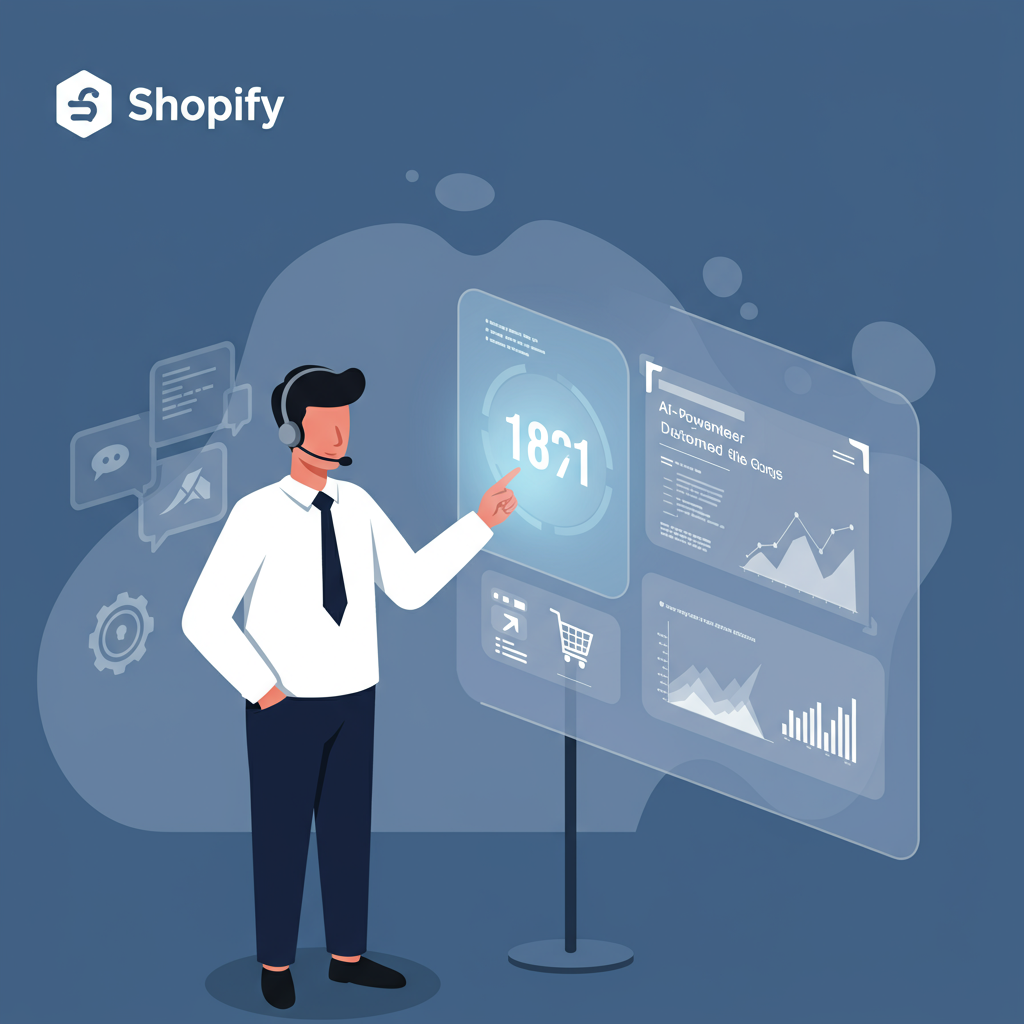How Artificial Intelligence Transformed Our Support Operations and Customer Experience
As a Shopify merchant, I know firsthand the exhilarating rush of growth. More sales, more customers – it’s what we all strive for.
But with that growth comes a significant challenge: scaling customer service. What was manageable with a handful of emails can quickly become an overwhelming deluge.
Suddenly, my small team is swamped. Response times lengthen, customer satisfaction dips, and I find myself spending more time on support than on strategy.
This is where I realized the immense potential of Artificial Intelligence (AI) to transform our customer service operations. It’s not about replacing humans, but empowering them.
My journey into AI for customer service began with a simple question: How can I maintain a personal touch while handling a rapidly expanding customer base?
The answer, I discovered, lies in strategically integrating AI tools into our Shopify ecosystem. These tools can handle repetitive tasks, provide instant answers, and even predict customer needs.
One of the first areas I explored was AI-powered chatbots. These aren’t the clunky, frustrating bots of old; modern AI chatbots are sophisticated and highly capable.
I configured our chatbot to answer frequently asked questions about shipping, returns, product specifications, and order status. This immediately offloaded a huge volume of inquiries.
Customers get instant gratification, and my support team is freed up to tackle more complex, nuanced issues that truly require human empathy and problem-solving.
Beyond basic FAQs, I’ve seen AI excel in personalized recommendations. By analyzing past purchases and browsing behavior, AI can suggest relevant products directly in the chat.
This not only enhances the customer experience but also creates new upsell and cross-sell opportunities, directly impacting our bottom line.
Another game-changer has been AI-powered sentiment analysis. This technology allows us to gauge the emotional tone of customer interactions.
If a customer expresses frustration or anger, the AI can flag it, prioritize the ticket, and even route it to a senior agent for immediate attention. This proactive approach prevents escalation.
Automated response generation is another powerful feature. For common inquiries, AI can draft initial responses, which agents can then review, personalize, and send.
This significantly speeds up response times and ensures consistency in our messaging, even across a growing team.
I’ve also implemented AI tools that assist my agents in real-time. These ‘agent assist’ tools can pull up relevant knowledge base articles, customer history, or product details during a live chat or call.
It’s like having an expert assistant whispering answers in their ear, making every agent feel more confident and capable, leading to faster and more accurate resolutions.
Proactive customer support, driven by AI, has also been transformative. For instance, if there’s a known shipping delay, AI can automatically notify affected customers before they even reach out.
This level of foresight and communication builds immense trust and reduces inbound inquiries related to common issues.
Data analytics powered by AI provides invaluable insights. I can see trends in customer inquiries, identify pain points in our products or processes, and understand peak support times.
This data helps me optimize our operations, refine our product offerings, and even improve our website’s clarity to reduce future support needs.
Implementing these AI solutions wasn’t without its considerations. I had to carefully choose platforms that integrated seamlessly with Shopify and our existing tools.
Data privacy and security were paramount. I ensured that any AI vendor I partnered with adhered to strict data protection regulations.
Training my team was also crucial. It wasn’t about fearing AI, but embracing it as a powerful co-pilot. We focused on how AI frees them for more meaningful interactions.
The results have been remarkable. Our response times have plummeted, customer satisfaction scores have soared, and my team feels less overwhelmed and more empowered.
We’re now able to handle significantly more inquiries with the same or even fewer resources, allowing us to reinvest savings into other areas of our business.
AI isn’t a magic bullet, but it’s an indispensable tool for any Shopify merchant looking to scale their customer service efficiently and effectively.
It allows us to maintain that personal touch, even as our customer base expands exponentially, ensuring every customer feels valued.
I truly believe that embracing AI is no longer an option but a necessity for sustainable growth in the competitive e-commerce landscape.
What do you think about the insights shared in this article? I’d love to hear your perspective on how AI could impact your Shopify customer service.






